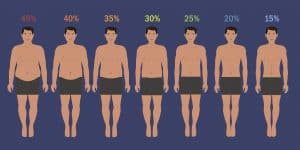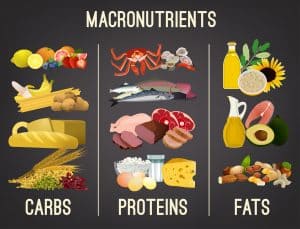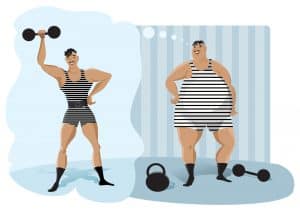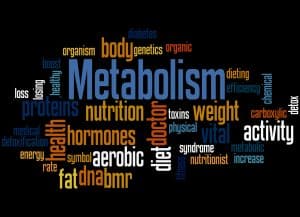The number one underrated factor hindering your muscle gains is …
You are probably eating right and training hard.
You don’t need anyone to point that out to you!
But what you don’t necessarily notice is that your muscles do not recover.
If you are an ego lifter, you might think that the more you train the more you gain muscle.
WRONG!
It’s the more you recover.
If, however, your muscles are not cooperating with you to lift despite adequate caloric surplus and good supplementation.
Then this is a clear signal of muscle fatigue.
They need to recover.
In this post, I’ll share with you 6 reasons why your muscles are fatigued and aren’t recovering.
Types of Muscle Fatigue
There are two types of muscle fatigue.
Peripheral and Central nervous system.
1
Peripheral Muscle Fatigue
This is a local soreness in the trained muscle.
This is not a bad sign.
In fact, if you’re not getting sore after the workout you may not be training intensely enough. You are not incorporating enough muscle fibers while training.
Or even worse … muscle fiber activation during the workout is not fully developed.
You need to exhaust the fibers! Force them to grow.
Or more accurately, tear them down in order to grow.
2
Central Nervous System Fatigue
This one you have to be careful of.
The central nervous system consists of the brain and spinal cords:
The brain sends the signals through the spinal cord to your body.
And the body responds back to the brain through the spinal cord.
When you workout, your brain sends the message to your muscles to command them to activate and produce force.
Now, what happens when you are fatigued is that the signal your brain sends to your muscles is reduced.
This means that your muscles won’t be activated enough to produce as much force to lift the weight.
So you end up lifting less weight!
Doesn’t that happen to you sometimes?
You get under the bar to bench press aiming for doing 10 and you end up doing 6 reps!
You get up and wonder… what happened?
Last week I did the same weight for 10 reps.
When that happens repetitively.
Meaning the week after you did 5 and the week after you could not even lift the bar.
This is bad.
It is a clear sign that your central nervous system is fatigued.
This directly impacts your muscle recovery.
Therefore, managing fatigue is an essential part of recovery.

5 Reasons For Muscle Fatigue and Why You're Not Recovering
The following 5 reasons are causing muscle fatigue and killing your recovery.
1
Excessively High Volume Training - Sets and Reps.
Training has a big impact on muscle recovery.
Now, you might ask… what causes the central nervous system to be fatigued?
It is NOT the heavyweights you lift for 6 or 5 reps.
It is the excessively high volume that causes the central nervous system fatigue!
Don’t get me wrong, I am a big fan of high-volume training since it is probably the biggest factor in muscle hypertrophy as we discussed here.
But taking your high volume training to the extreme by either staying on a high volume training for a long period of time or by doing a very large number of sets (especially for smaller muscle groups) is just not a good idea.
You will start to accumulate central nervous system fatigue.
The same can be said about the high number of repetitions, even with less volume.
Doing sets of, say, 30 reps with light weights will cause an intolerable amount of muscle burn due to the aerobic demand without even reaching failure.
Also, taking every set beyond failure will eventually cause the central nervous system fatigue.
All bad ideas. Stay away!
2
Your Rest Periods are Short.
Another reason why you are accumulating central nervous system muscle fatigue is you’re not getting enough rest between the sets.
Measuring the rest period by the recovery of the local peripheral muscle fatigue is deceptive.
Recovery of peripheral muscle fatigue happens much quicker than that of the central nervous system.
If you are not resting enough between the sets, the signal coming from your brain is not as strong.
Your muscles are not fully contracting.
Not enough activation in all muscle fibers.
You end up lifting fewer reps or even lifting less weight.
You might even ignore this sign by thinking you’re just tired.
That’s not the case, here!
Pay attention to these nuances.
I am not saying you don’t completely need short rest periods.
If you’re doing bicep curls or rear delt raises, you don’t need a 5 minute rest period.
But if you’re doing heavy squats, you might need even longer.
Follow your common sense.
3
Not Sleeping Enough.
Sleep consists of two cycles: Non-Rapid Eye Movement (non-REM) and REM.
The non-REM part of the cycle takes about 90 minutes and consists of three phases: awake, light, and deep sleep.
These three are followed by a shorter-20 minute- REM phase. Then the cycles repeat.
As your sleep progresses into the night to early morning, the REM phase becomes longer, and the non-REM shorter.
The REM part is associated with enhanced brain activity, while the non-REM part is the period that allows physical and muscular recovery.
It’s the period when your growth hormone production is at the highest levels.
Now, what happens when you go to bed late and get up early is that you miss out on the non-REM phases of sleep which helps recover your muscular fatigue.
It is OK, however, if you go to bed late and wake up late.
But sleep deprivation?
Horrible for your health.
It’s recommended that you get on average 6-8 hours of sleep a day.

4
Not Getting Enough Carbohydrates and Fats.
Eat balanced meals around your training.
Pre-workout, during, and post-workout.
Protein for bodybuilding or weightlifting is an automatic thing.
But what’s with the carbohydrates and fats?
For pre-workout, you will need a meal that has, say:
- 20g Protein
- 20g Carbohydrates
- 10g Fats
The carbs will increase your insulin sensitivity while the fats will keep the insulin levels high to avoid spike-like insulin in the blood (which might cause you to crash quickly in your workout).
For intra-workout, it’s highly recommended when you train hard that you take pre-digested carbohydrates, like Cluster Dextrin, and the full profile of essential amino acids.
The reason is that during the workout, muscle protein breakdown is the highest.
You are losing muscle fibers (amino acids) by tearing them down via heavy lifting.
When you consume fast-acting carbs, your muscle cells become very receptive to nutrients due to the high insulin sensitivity.
Your blood pushes as much amount of amino acids and glucose into your muscle cells to compensate for the lost fibers during training.
This way you end up with more protein synthesis levels than protein breakdown.
Which means faster recovery.
Within an hour of your workout, consume another balanced post-workout meal to maintain the elevated levels of protein synthesis over breakdown.
Fast recovery leads to hard training and muscle growth.
5
Lower Your Stress Levels.
Stress drives higher cortisol levels.
Cortisol in excess is a catabolic hormone. It breaks down muscles.
Always remember, to build muscle you need your protein synthesis levels to exceed protein breakdown.
Elevated cortisol for a long period of time will raise the latter process over the former.
In other terms, you will lose muscle.
While it is not possible to avoid protein breakdown, managing stress will help lower cortisol levels and, hence, protein breakdown.
If you are an emotional person, take a few minutes before you commit your emotions to certain situations.
Most of the time you will realize stress can be manageable.
When you find yourself angry, try to identify and admit you are in that emotional state, first.
Then attempt to get out of it.
Do something that makes you feel better.
Focus on working towards your goals.
Work on your social connections rather than your social media!
Ease up and laugh.
Again, the faster your recovery the harder you train and the more results you will achieve.













